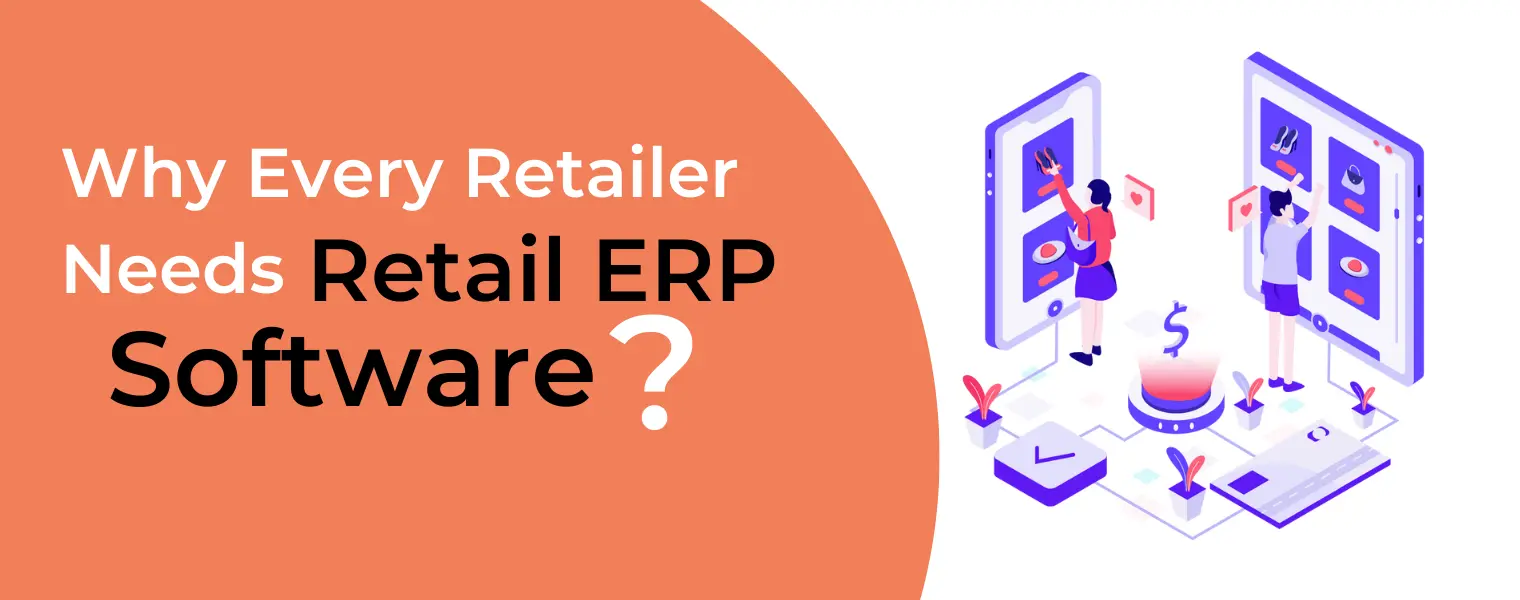
ERP (Enterprise Resource Planning) has become an unavoidable requirement for the retail industry, regardless of size. Retail ERP software are becoming increasingly important for brands in order to sustain and keep up with changing customer demands and increasing competition. Retail ERP is a set of customizable applications that allows retailers to seamlessly integrate and manage all major operations, such as handling multi-location stores, frequently moving stocks, pricing changes, product discounts, and much more. If performed manually, these operations could be time-consuming and complicated. Retail ERP software provides the quick, simple, and dependable management solutions required to run businesses more efficiently. The top key benefits of Retail ERP software in a retail business are as follows.
Every retail business depends on data from inventory sales, purchases, and other divisions. Businesses require this information to be highly relevant, accurate, and real-time in order to make the best decisions at the right time. All of the data collected by the ERP system is stored in a single database, allowing for easy access to the data and assisting retailers in better planning to overcome various challenges. Furthermore, to avoid any delays in critical operations, this ERP software can send relevant information to sub-divisions.
Brand loyalty is like building a sandcastle on the beach, with the constant fear of losing customers. ERP in retail could help with customer management and retention. As previously stated, ERP is based on information, which can be critical once analysed. For example, you can sort customers' purchase history and select the most active ones to reward with reward points. The customer history also provides insight into customer habits, allowing you to create promotions and deals that are tailored to their specific requirements. ERP, in addition to sales and marketing, enables you to quickly resolve customer complaints. Overall, Retail ERP software gives you a unified view of all your customers and makes it available to all relevant departments in your company.
ERP systems help to reduce employee repetition and save money while increasing efficiency. Retailers can also use ERP software to manage their human resources. ERP allows employees to more easily correct their daily operations and avoids repetitive tasks. As a result, it improves employee operational efficiency, allowing them to meet goals on time and generate more revenue for the company. The ERP system is a useful tool for officials because it allows them to assign new tasks, track goals, and so on.
Inventory management is critical to increasing retail profit margins. The retail industry is dominated by fast-moving consumer goods (FMCG). The demand for these products can change on a daily basis. Having out-of-stock inventory or excess stock would almost certainly result in significant financial losses. To avoid such disasters, retail industries have begun to integrate ERP software to track inventory movements and alert employees in the event of shortages. Furthermore, it can forecast demand by analysing previous consumption trends and customer interests.
Predictive analytics is used in conjunction with modern ERP systems to provide retailers with real-time insights into operations such as inventory management and omnichannel order fulfilment. After all, sales and revenue are the two most important aspects of any retail business. All retail industry changes aim to increase sales and drive additional profits. ERP systems also assist organisations in identifying critical products for revenue retention. Businesses that identify such products can ensure stock availability to maximise sales.
Retailers frequently require multiple channels to ensure that all operations in their stores run smoothly. An ERP system unifies all retail channels on a single platform, allowing departments to share data in real time. Every time there is an update, one department no longer needs to notify another. Employees can access the data whenever they want. This cutting-edge ERP solution enables businesses to communicate more effectively.
Retail ERP software allows businesses to capture, store, and manage information using an automated system to organise and simplify daily operations and reduce the time-consuming manual labour required to perform repetitive tasks. The solution assists businesses in increasing efficiency in order to meet targets on time, resulting in lower operating expenses.
The nature of the retail industry necessitates a dynamic pricing system. Keeping track of it manually, on the other hand, is a time-consuming task. As a result, you require a strong ERP solution that can automate the process of recording product prices and discounts, making the process flexible and effortless.
ERP Software is required to compete in today's market. The application includes features that can improve a retail business's operational capabilities and that give it a competitive advantage. DoFort Retail ERP software is designed to meet the fundamental needs of retail business in core management, planning, sourcing, logistics, and sales functions. These end-to-end capabilities enable brands to manage the entire concept-to-consumer process more efficiently, resulting in faster time to market and increased competitiveness. Request a free demo to see how Retail ERP software improves retail process flow and provides real-time visibility to the retail business.
Welcome to DoFort !